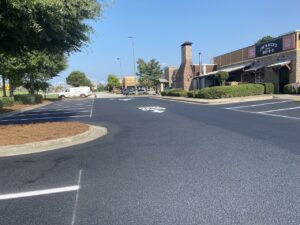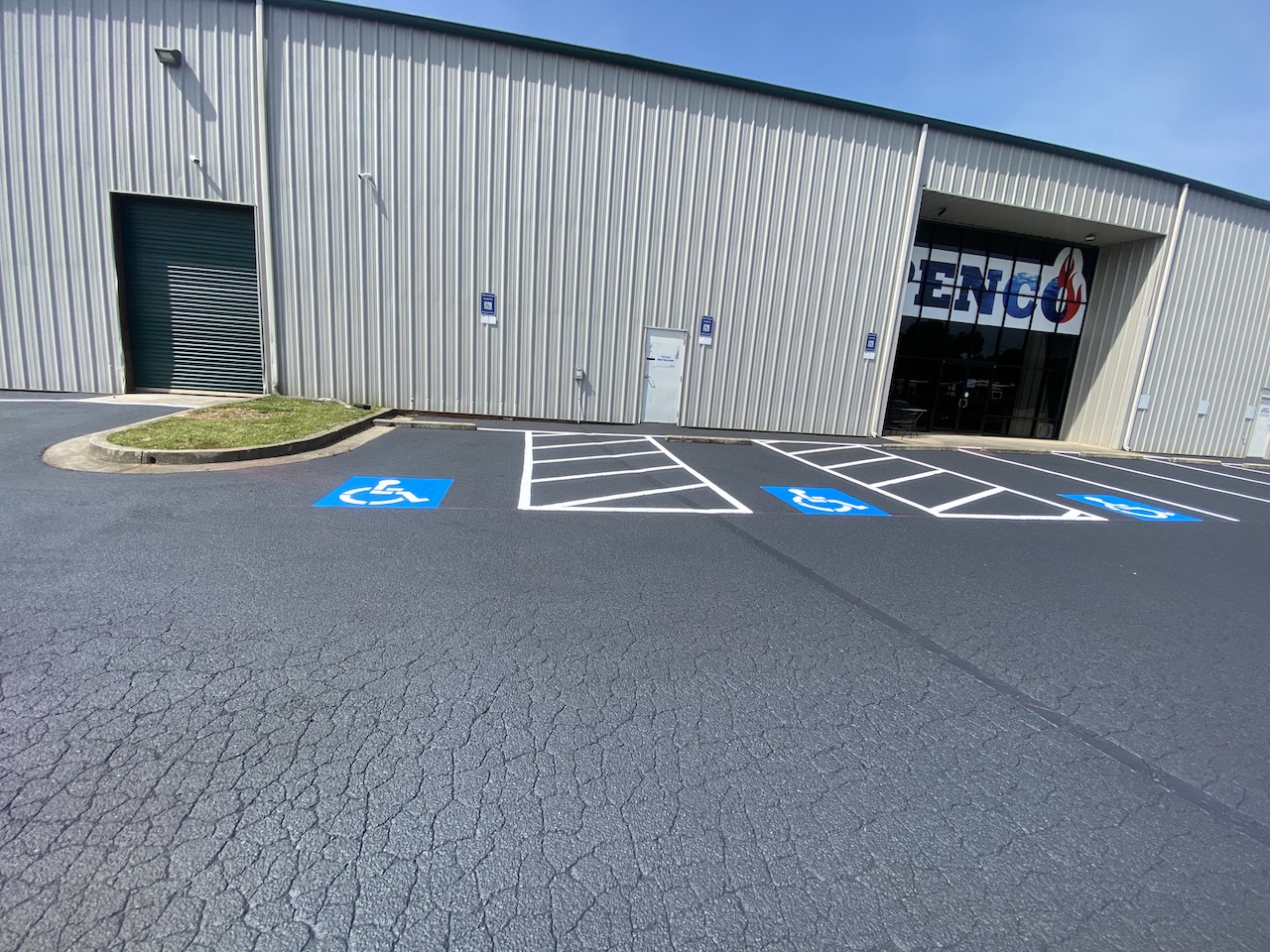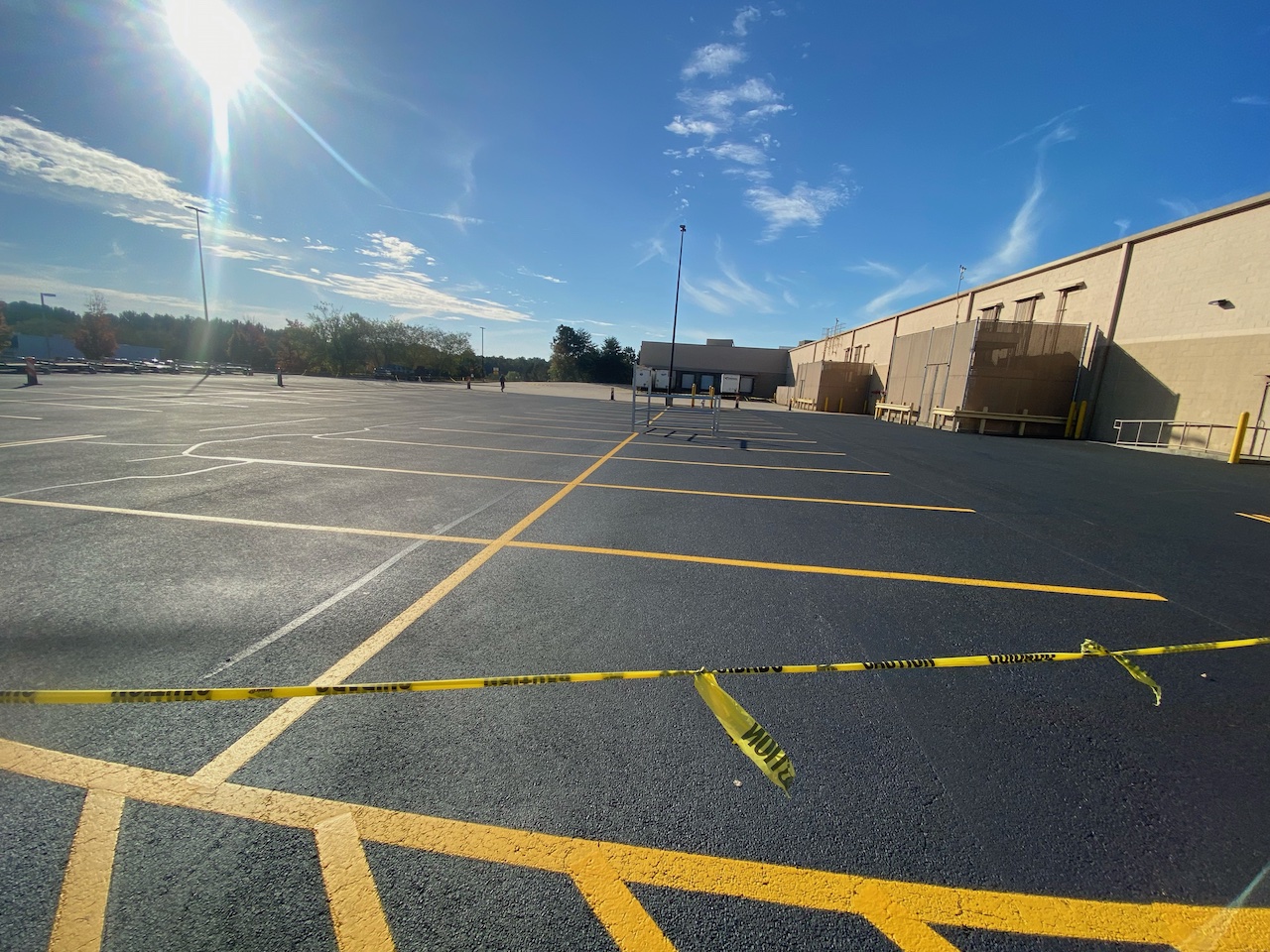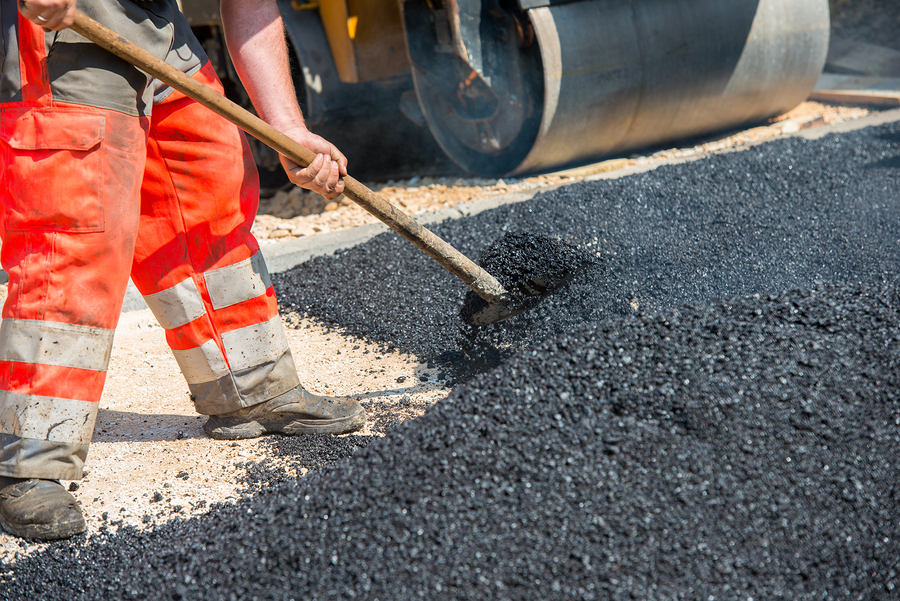
How Does Poor Pavement Prep Lead to Asphalt Sealcoating Failure?
Asphalt sealcoating contractors sometimes spend more time preparing the surface for the sealant than they do performing the sealcoating service. Tree sap, oils and dirt can all prevent the asphalt sealer from adhering to the surface.
If cracks are left behind, then the sealant may also be wasted by flowing into the crevices. Cracks also stop the asphalt seal coating from being able to stop automotive fluids from seeping to the lower levels of the pavement. Power washing, crack repair and other prep services all help to make a uniform and clean surface for the best sealcoating application possible.
What Are the Ideal Weather Conditions for Doing Sealcoating?
Asphalt sealcoating in Atlanta can be done during all seasons of the year, but your contractors should be cautious to follow a few basic principles regarding the weather. On extremely hot days, they’ll want to do sealcoating before the temperatures get too warm, which could cause flash drying. Sealcoating should also be done on a day when it isn’t expected to rain.
How Should an Asphalt Sealcoating Contractor Apply the Sealant?
The generally accepted best practice for asphalt seal coating is to apply the sealant in two thin coats. A single thick coat might not cure properly, which will lead to flaking and cracking. Occasionally, you might need three coats of sealant, but this is usually reserved for areas with heavy traffic or other risk factors for damage.
Is It Possible to Do Asphalt Sealcoating Too Often?
An asphalt sealcoating service should never be done immediately after paving a new surface. The oils from the fresh pavement need to have time to evaporate so that the sealant sticks to the top properly. Your sealcoating contractor can check the pavement once the waiting period is over to make sure it is adequately cured before they do an initial seal coat service.
Protect Your Pavement With a Quality Sealcoating Service
MH Greeson Paving takes all the right steps to create a long-lasting sealcoat for your pavement. On top of waiting the correct amount of time after doing asphalt paving, we also perform asphalt crack repair and parking lot maintenance services before we start sealcoating. After we sealcoat, we can also plan for ADA compliance, add pavement markings and do parking lot striping before putting in traffic signs, bollards and car stops. We’re ready to show you how we prevent sealcoating failures when you call us at 770-335-2983, send an email to tripp@mhgreesonpaving.com or fill out our online form for a free quote.




